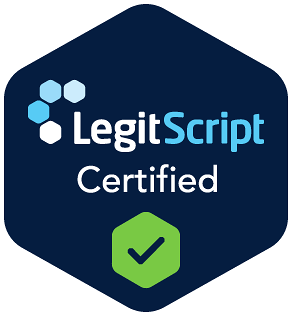Dual Diagnosis Treatment
A dual diagnosis occurs when an individual meets clinical criteria for a mental health disorder and a substance abuse condition at the same time. [1] Symptoms often intertwine—anxiety may fuel drinking, while chronic opioid use can deepen depression—making isolated care ineffective.
A dual diagnosis treatment center New Jersey residents trust delivers integrated assessment, synchronized medication management, and unified therapy teams so both dimensions of health move forward together.
This coordinated approach replaces fragmented services with a single treatment roadmap that addresses biological, psychological, and social drivers of addiction and mental illness.
Key Points
- Dual diagnosis care addresses both mental health disorders and addiction together
- Treatment for co-occurring disorders that address both together results in lower relapse rates
- Structured therapy sessions with a whole person focus get to the root of both conditions for lasting results
Why Specialized Dual Diagnosis Care?
Dual diagnosis treatment combines psychiatric care and addiction services under one coordinated plan. Clients see both a prescribing clinician—who manages medications for mood, anxiety, or trauma-related disorders—and an addiction therapist who delivers CBT, DBT, and relapse-prevention groups. Progress is reviewed weekly by the clinical team, so adjustments to therapy goals and medication dosages happen in tandem, ensuring mental health stabilization and substance-use reduction move forward together.
- Whole-person focus: Integrated plans treat mind, body, and environment, reducing hospitalization risk for complex co-occurring disorders.
- Lower relapse rates: Simultaneous psychiatric and addiction treatment cuts the cycle of symptom flare-ups, triggering substance use and vice versa. [2]
- Coordinated expertise: Psychiatrists, addictionologists, and therapists share data in real time, ensuring medication changes align with therapy milestones—an evidence-based hallmark of leading programs.
- Streamlined resources: One point of entry means faster insurance approvals, unified discharge planning, and clearer communication for loved ones supporting recovery.
Core Clinical Components
During co-occurring disorder treatment, experienced psychiatrists diagnose mood, anxiety, personality, or psychotic disorders and adjust psychotropic medications throughout care.
Evidence-based therapies such as Cognitive-Behavioral Therapy and Dialectical Behavior Therapy help to reframe maladaptive thoughts and build emotion-regulation skills, targeting triggers that link mental illness and substance use. [3]
When needed, FDA-approved agents—buprenorphine, naltrexone, mood stabilizers—address both substance dependence and underlying psychiatric symptoms. [4]
Before graduation, the care team puts together a practical relapse-prevention plan, schedules outpatient psychiatry appointments, and introduces each client to peer-support groups—making sure help is already in place once the program ends.
Dual Diagnosis Treatment Structure at The Garden
The Garden is a recovery center that delivers a flexible, outpatient-focused continuum while arranging seamless referrals for higher-intensity needs such as medical detox or residential stabilization. Every individualized treatment plan sets measurable goals and is reviewed weekly, allowing smooth transitions among the center’s directly operated levels of care:
- Partial Care (PC): High-intensity programming that meets several hours per day on most weekdays, pairing group therapy, skills workshops, and psychiatric support with the freedom to sleep at home or in approved sober housing.
- Intensive Outpatient (IOP): Three to five sessions per week provide structured therapy, medication management when indicated, and peer support—ideal for clients balancing work, school, or caregiving obligations.
- Outpatient Services (OP): One to two clinical visits per week maintain therapeutic momentum through individual sessions, process groups, and ongoing case-management check-ins.
- Mental Health IOP/OP: Licensed tracks mirror the above schedules but focus exclusively on primary mood, anxiety, or trauma-related concerns, supporting dual diagnosis clients once substance use symptoms are stable.
For medical detoxification or 24-hour residential care, the admissions team coordinates placements with trusted partner facilities, then guides clients back into The Garden’s step-down pathway to preserve continuity of care.
Take the first step towards recovery.
Our representatives are standing by to help you start healing today.
What Conditions and Groups of People Benefit from Dual Diagnosis Treatment?
Anyone who struggles with both a mental health disorder and substance abuse can benefit from structured care that addresses the root of both conditions. Some of those who benefit may include:
- Individuals with substance use disorders: alcohol, opioids, stimulants, benzodiazepines, and cannabis are all addressed.
- Those with co-occurring mental health conditions: treatment tracks are equipped to manage borderline personality disorder, bipolar disorder, post-traumatic stress disorder, major depression, and generalized anxiety.
- Age-specific programming: adolescents and young adults join peer-matched groups that tailor DBT skills to school, social media, and family systems.
- Family or couples counseling: dedicated sessions teach validation and boundary-setting techniques so loved ones can support progress after discharge.
What Treatment for Co-Occurring Disorders May Include
The specifics of truly customized dual diagnosis treatment will vary depending on individual needs, but there are some commonalities that most programs include.
- Licensed clinicians meet one-on-one to apply CBT or DBT techniques, review diary cards, and set specific practice tasks for the week ahead.
- Group therapy sessions, which typically involve eight to ten participants, focus on rehearsing distress tolerance, emotion regulation, and interpersonal effectiveness strategies under the guidance of a therapist.
- Relapse prevention workshops help participants identify their own warning signs, practice effective coping strategies, and leave with a clear action plan for challenging moments.
- Family therapy sessions strengthen everyday conversations and boundary-setting, giving parents, partners, and siblings practical ways to support each person’s progress.
- Psycho-education and process groups include focused discussions to explore relapse triggers, coping strategies, and healthy lifestyle habits within a supportive peer setting.
- Alumni groups and community referrals keep graduates plugged into sober housing, job resources, and peer meet-ups—extra layers of encouragement long after formal care ends.
Accessing Dual Diagnosis Care in New Jersey
When seeking dual diagnosis care, the process is typically straightforward to ensure accessible care for all who need it.
- Intake call: A brief phone screening captures presenting concerns and preferred start dates.
- Insurance plan verification: Benefits specialists confirm coverage with commercial carriers and New Jersey Medicaid, outlining any costs before admission.
- Comprehensive clinical assessment: Licensed professionals complete biopsychosocial and psychiatric evaluations that shape the personalised treatment plan.
- Program orientation: Clients receive schedules, therapy guidelines, and support-line contacts, beginning therapeutic work the same day they arrive.
This streamlined four-step pathway pairs financial clarity with rapid entry into evidence-based treatment services for residents throughout New Jersey.
Frequently Asked Questions About Dual Diagnosis Treatment Centers in New Jersey
What is the typical length of stay in a dual diagnosis program?
Most clients participate for about 60 – 120 days. During that time, they move through three outpatient tiers designed to match changing clinical needs. Licensed clinicians review each treatment plan every week; progress determines when a participant steps down to the next, less intensive tier. This flexible structure keeps care intensive when symptoms are acute and gradually hands back autonomy as stability improves.
How are medications managed for co-occurring mental health conditions during treatment?
Experienced psychiatrists complete a comprehensive evaluation at admission and establish an individualized medication schedule aimed at stabilizing mood and reducing cravings. Medications are reviewed during weekly case conferences with the therapy team, allowing dose adjustments to align with progress in CBT, DBT, and relapse prevention work. This coordinated process keeps symptoms in check and enables clients to focus fully on developing long-term recovery skills.
Can bipolar disorder be treated alongside substance use?
Yes. The Garden’s integrated program serves individuals with co-occurring bipolar disorder and substance use disorders. Experienced psychiatrists provide medication management—such as mood stabilizers—while therapists employ evidence-based CBT and DBT to target impulsivity, cravings, and other relapse triggers. This coordinated approach keeps psychiatric symptoms and substance use progress aligned under one treatment plan.
What aftercare options support long-term recovery after a dual diagnosis treatment program?
Dual diagnosis treatment centers in New Jersey offer customized discharge plans that include alumni meetings, telehealth therapy, medication-management check-ins, and referrals to local peer groups or sober-living homes.
Sources
[1] Nami, & Nami. (2024b, May 31). Understanding dual diagnosis. National Alliance on Mental Illness (NAMI). https://www.nami.org/advocate/understanding-dual-diagnosis/
[2] Hegner, R. E. (1998, April 14). Dual Diagnoses: The Challenge of Serving People with Concurrent Mental Illness and Substance Abuse Problems. NCBI Bookshelf. https://www.ncbi.nlm.nih.gov/books/NBK559478/
[3] Integrated Treatment for Co-Occurring Disorders: The Evidence. (2009). In Substance Abuse and Mental Health Services Administration (Report SMA-08-4366). Center for Mental Health Services. https://store.samhsa.gov/sites/default/files/ebp-kit-the-evidence-10242019.pdf (Original work published 2009)
[4] Saunders, E. C., McGovern, M. P., Lambert-Harris, C., Meier, A., McLeman, B., & Xie, H. (2015). The impact of addiction medications on treatment outcomes for persons with co-occurring PTSD and opioid use disorders. American Journal on Addictions, 24(8), 722–731. https://doi.org/10.1111/ajad.12292



